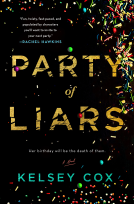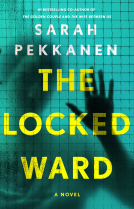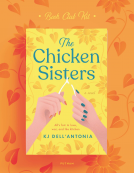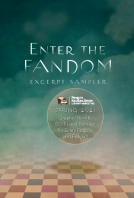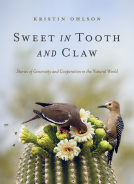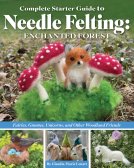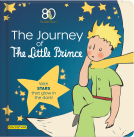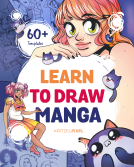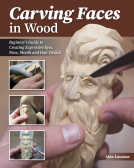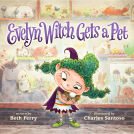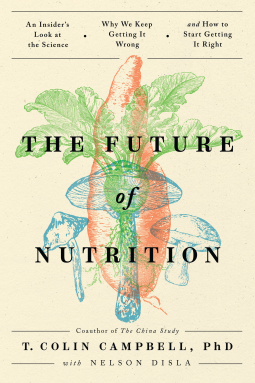
The Future of Nutrition
An Insider's Look at the Science, Why We Keep Getting It Wrong, and How to Start Getting It Right
by T. Colin Campbell
This title was previously available on NetGalley and is now archived.
Send NetGalley books directly to your Kindle or Kindle app
1
To read on a Kindle or Kindle app, please add kindle@netgalley.com as an approved email address to receive files in your Amazon account. Click here for step-by-step instructions.
2
Also find your Kindle email address within your Amazon account, and enter it here.
Pub Date Dec 15 2020 | Archive Date Jan 13 2021
Talking about this book? Use #TheFutureofNutrition #NetGalley. More hashtag tips!
Description
From the coauthor of The China Study and author of the New York Times bestselling follow-up, Whole
Despite extensive research and overwhelming public information on nutrition and health science, we are more confused than ever—about the foods we eat, what good nutrition looks like, and what it can do for our health.
In The Future of Nutrition, T. Colin Campbell cuts through the noise with an in-depth analysis of our historical relationship to the food we eat, the source of our present information overload, and what our current path means for the future—both for individual health and society as a whole.
In these pages, Campbell takes on the institution of nutrition itself, unpacking:
• Why the institutional emphasis on individual nutrients (instead of whole foods) as a means to explain nutrition has had catastrophic consequences
• How our reverence for "high quality" animal protein has distorted our understanding of cholesterol, saturated fat, unsaturated fat, environmental carcinogens, and more
• Why mainstream food and nutrient recommendations and public policy favor corporate interests over that of personal and planetary health
• How we can ensure that public nutrition literacy can prevent and treat personal illness more effectively and economically
The Future of Nutrition offers a fascinating deep-dive behind the curtain of the field of nutrition—with implications both for our health and for the practice of science itself.
Available Editions
| EDITION | Other Format |
| ISBN | 9781950665709 |
| PRICE | $27.95 (USD) |
| PAGES | 350 |
Links
Featured Reviews
If there is anything that makes me relate to this book is the question my Grandmother once asked me, "why is it that what's good for you tastes like punishment when you have to take it to live?" She'd just suffered another ulcer attack and the doctor suggested a lifestyle change, refused to give her the medication she always took or upgrade it.
Three years later and she is strong and can even eat pepper! So, yes, there is so much research and information provided to governments and corporations on health, but where money is concerned, the likelihood to push for things that would drive another industry is high. I feel it is the same with meat, dairy and processed food. I have never read Dr. Campbell's study and book on whole food plant based nutrition and now I am looking more closely at what I eat, how I eat and also cutting down on sugar and it's proving quite interesting.
Thanks for the eARC Netgalley.
The Future of Nutrition is an expostulatory essay/survey of nutrition and health by Dr. T. Colin Campbell. Due out 15th Jan 2020 by BenBella Books, it's 350 pages and will be available in hardcover, audio, and ebook formats. It's worth noting that the ebook format has a handy interactive table of contents as well as interactive links. I've really become enamored of ebooks with interactive formats lately.
This is a well written and science based look at whole food plant based (WFPB) nutrition, through the lens of marketing, political movements, government intervention, and the formal academic science establishment. I would point out that the author makes no effort to be completely objective, he does build up a convincing argument, but the arguments he presents are in support of his original premises: namely that health is tied directly and inextricably to nutrition and that to enjoy good health, humans should largely depend on a plant based diet made up of whole (and mostly unprocessed) food as close to its natural state as possible.
The layout is logical and the language will be accessible to most readers. The introductory chapters build up the connection between disease and nutrition along with a capsule survey of the state of disease treatment today.
When I was a young person in secondary school (in the USA) I can remember vividly how quickly the established and accepted pyramid of food groups changed seemingly overnight from a very meat heavy recommended diet to more vegetables and fruits but even then, there was an emphasis on avoiding fats, oils, and refined sugars. The author spends a fair bit of content building up the connection throughout history of the influence of commercial interests on the recommendations which generations of consumers have followed. The changes which came and went rapidly led to confusion and resentment (what can we eat when *everything* is bad for us).
The last section includes the author's conclusions and a call to reflection where (for me personally) he veers off into an uncomfortable judgement of some parts of the formal medical establishment including a scathing rebuke of cytotoxic cancer treatment regimes (chemotherapy).
The author definitely "shows his work". I enjoyed poring over the notes and the exhaustive bibliography and full chapter notes and annotations (did I mention that this is an academic work?). The notes and references are likely worth the price of admission for anyone interested in the subject and there's obviously been a career spanning amount of time spent on research and resource gathering on the part of the author.
I found the entire book quite interesting and fascinating. It is, admittedly, a niche book and will appeal to readers interested in biology, nutrition, and the process of disease, but might not appeal to readers looking for an easy read. The language is rigorous and formal. I definitely don't think it's inaccessible for the average reader, but it will take some effort (and I think that's a good thing). This would make a good support text for classroom or library use, for nutrition and allied subjects, as well as a superlative read for the particularly bio-history-interested.
I do not necessarily agree with all of his conclusions in every detail, but I certainly agree with the basic premise that WFPB diets are good for us and for the planet (and not necessarily good for powerful mega-agro-businesses' bottom line).
Five stars. This is well and deeply researched and engaging.
Disclosure: I received an ARC at no cost from the author/publisher for review purposes.
 Evalina I, Reviewer
Evalina I, Reviewer
So much politics surrounds the food choices we make. Honestly, the politics involved would make your head spin! Yet, there comes a moment in time when people become like the actor in the movie Network. In other words, they become “…mad as h—-, and [decide they’re] not going to take it anymore.”
The benefits of a whole food plant-based diet have been studied and seen for a long time. Yet, there are many entities that attempt to keep the lay public eating a particular way for the benefit of those entities. However, there is only so much scientific fact against which a person may argue.
In this work, Dr. Campbell continues to provide a roadmap through three controversial areas being faced in today’s world regarding nutrition and its impact on health. The information provided is evidence-based and well-documented. This allows the reader to get accurate information to make better dietary decisions that result in a healthier lifestyle.
This is a book that not only works for personal use but also as a gift for people you care about. It is a book you will refer to often to provide yourself with clarity in the midst of the nutrition confusion often experienced.
I voluntarily reviewed an Advanced Reader Copy of this book provided by the publisher and Net Galley but the thoughts expressed are my own.
